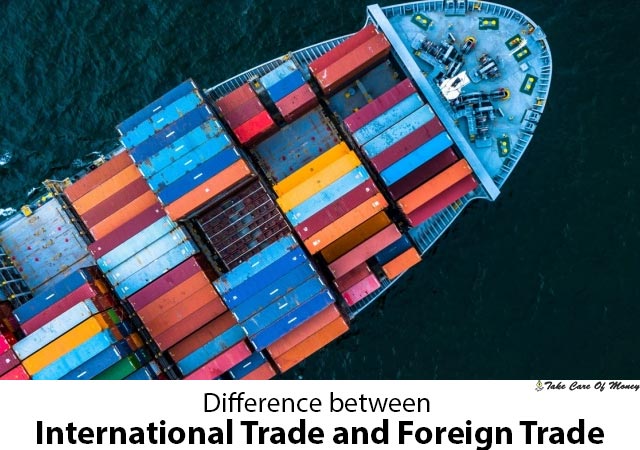The difference between international trade and foreign trade lies in the breadth of the concept. International trade refers to the trade of all goods and services worldwide. Meanwhile, the concept of foreign trade is often used to mention a country’s transactions against the rest of the world.
It is common to confuse the concept of international trade with that of foreign trade. Many people use them as synonyms when they really are not. Although it is true that they are similar concepts with many things in common, they are not identical.
The main difference between international trade and foreign trade
The main difference, as we have said previously, is based on the amplitude of the term. International trade is a global thing of which all open economies are a part . It is usually used to name a part of the economy. For example: “International trade offers many business opportunities.” or “International trade encourages competition.”
On the other hand, foreign trade is a much more limited concept. It is normally used to mention a country’s transactions with the rest of the world. Said with the words that are part of the concept, to name the trade of a country abroad. For example: “If country X wants to grow, the government must change its foreign trade policy.” or “The depreciation of the exchange rate of country X has boosted foreign trade.”
An easy way to see the difference between international trade and foreign trade is to exchange words. That is, where it puts international trade, put foreign trade and vice versa.
“Foreign trade offers many business opportunities.” and “Foreign trade encourages competition.”
“If country X wants to grow, the government must change international trade policy.” and “The depreciation of the exchange rate of country X has boosted international trade.”
In the first case, the phrases could be true. That is, replacing the word does not compromise the coherence of the sentence. However, in the second case, the sentences lose some relation.
Firstly, because it does not make much sense for a government to change international trade policy. International trade occurs between all countries and each zone or country has its own policy. Regarding the second sentence, when we talk about the exchange rate, we usually talk about one country or area compared to others. For example, the euro (euro area) against the dollar (United States). The depreciation of a currency can grow international trade, however, it is something that is often cited with reference to a country or area.
